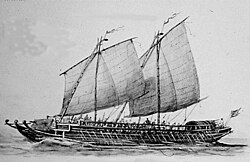| Part of a series on |
| Forced labour and slavery |
|---|
 |


Chattel slavery was legal in the Sultanate of Brunei until the 20th-century.
Historically, non-Muslim slaves were provided to Brunei via purchase from merchants and pirates; via enslavement of non-Muslim captives during warfare; and by enslavement of non-Muslim human tributes during taxation. Brunei came under British influence from the 1840s and became a British protectorate in 1888. The British conducted an abolitionist policy in Brunei, but could not enforce an abolition since Brunei was a protectorate and not a colony.
In the 20th-century, the development of an economy based on rubber and oil via investments by Westerners, who did not use slave labor, resulted in a deterioration of the institution of slavery in Brunei. Slavery in Brunei was formally abolished by law in 1928.
